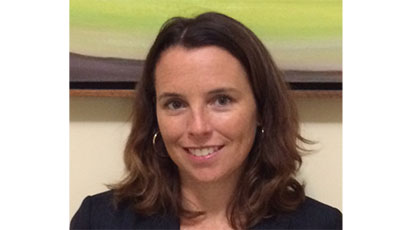
Dr. Meredith L. Patten has been appointed as Executive Director of the Research Network on Misdemeanor Justice (RNMJ). Patten brings to the table over 18 years of experience in the criminal justice and security fields, including consulting for a variety of organizations such as the Office of Court Administration of the New York State Courts, the United States’ Department of Homeland Security, Interpol, the United Nations, Amnesty International, Human Rights Watch, and the Trinidad and Tobago Police Service.
With the generous support of a $3.2 million grant from the Laura and John Arnold Foundation, Patten will spearhead the development of the Research Network on Misdemeanor Justice across six new cities. Research currently being done in NYC, which to date has focused on misdemeanor arrests, summonses, enforcement actions, and offender mobility, will be replicated and expanded with the goal of shedding light on the challenges facing law enforcement today. To achieve this, RNMJ will partner with researchers, law enforcement agencies, academic institutions, and other justice agencies to roll out the replication of the project.
“It’s a really exciting time in terms of criminal justice and law enforcement reform around the country,” said Patten, “and given the number of incidents we’ve seen in the news lately, these reforms couldn’t be more urgent.”
Here in NYC, research conducted by the Misdemeanor Justice Project has informed significant policy initiatives like the Criminal Justice Reform Act signed by Mayor Bill de Blasio in June. The new law focuses on increasing transparency, reducing the number of arrests, and decreasing incarceration in the city. The Misdemeanor Justice Project was also able to assess Police Commissioner Bill Bratton’s notion of the “peace dividend,” which aimed to reduce enforcement actions by the police in NYC by 1 million by 2015; they found a reduction of over 800,000 between 2011 and 2014.
These are the sort of reforms that Patten hopes to proliferate across the six new American cities that have yet to be selected, and she says she eventually hopes to expand the research network nationwide.
“There has never been a cross examination of these trends across different cities and that is what we aim to do with the research network,” Patten said, “we hope to further the dialogue on law enforcement reform.”



